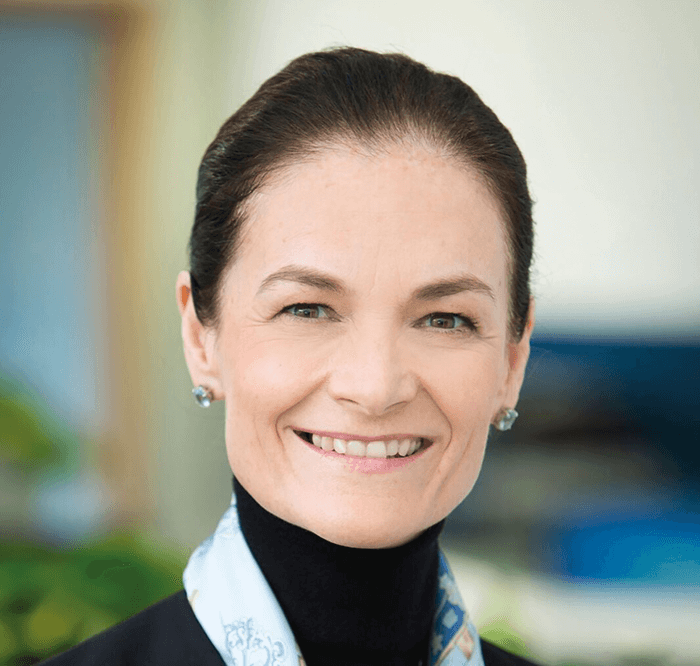The battlefield and the boardroom are more similar than you might think
For me, everything started with the military. I was raised in a military family and when I was searching for financial support for my medical studies it seemed a good time to join the British Navy, which had just started to open its doors to women in the medical branch. I served as a medical officer in the British Navy and was part of the Minesweeper Squadron during the Gulf conflict. Ultimately, I rose to the rank of Surgeon Lieutenant Commander, but after my tour of duty I wanted to go back into research, so I trained in cardiovascular medicine. I worked for the National Heart and Lung Institute, where I investigated the role of cholesterol on atheromatous plaques, and in 1997 I was offered the opportunity to join the pharma industry as a cardiovascular medical advisor at Bristol-Myers Squib (BMS), which was an exciting opportunity; in the 1990s, BMS was one of the top cardiovascular companies in the world.The military turned out to be an excellent precursor for a career as a woman in the pharma industry. Frankly speaking, the pharma industry is very male dominated, but the military is too, so I was used to it. Looking back, I learned many valuable lessons at a young age in the Navy that really helped me to build my business career; in particular when navigating the corporate levels of big pharma. In fact, I have previously given presentations about going from the battlefield to the boardroom. The military taught me the importance of leadership, respecting and valuing each employee equally, and courage and resilience under pressure, as well as being able to cope with a risky, innovative and global environment – all essential skills if you want to succeed in senior roles in the pharma industry.
Pharma does more than simply make medicine
The move to BMS was my opening to the pharma industry – and since then I have traveled all over the world. You might say I did my first global tour of duty in the military, and my second in the pharmaceutical industry! At BMS, I had the opportunity to live and work across 50 countries. I mostly worked in scientific medical affairs and cardiovascular drug development. It was a great step for my career to learn how to develop and register medicines – and seeing drugs that you have helped develop being given to patients is tremendously rewarding. As one example, in 2006 I was asked to chair BMS’s steering committee for immune-oncology. We acquired Medrex and ultimately ended up with one of the first immuno-oncology programs in the clinic for patients living with melanoma. I will never forget the days when we started to unlock the phase II data and saw patients with stage II melanoma, who were destined to only live 6-12 months, living beyond 2-5 years – including some young women who went on to have children. Another project I am immensely proud of is the work I did at BMS with HIV. In the Navy, I treated sailors with HIV returning from tours of duty in Africa in the 1980s – essentially it was hospice care for those individuals. Fast forward twenty years later when I was at BMS and a single pill a day could help prevent death from HIV. And it wasn’t just the medicine making that helped make a difference; I was also able to get involved in BMS’s philanthropic effort in Africa; the Secure the Future Program aimed to prevent mother-to-child HIV transmission and take care of children who either had HIV or had been orphaned by it. The program started a long-term interest in philanthropy and healthcare in Africa – and a few years ago I established a UK charity called You Belong. It looks at new pathways of healthcare and community-based care for people living with mental health diseases in Uganda and Sub-Saharan Africa. I really want to be able to make a difference to healthcare – and I am fortunate to have that opportunity.
Annalisa’s Top Career Tips
- Value everyone equally
- Be kind and gracious every day
- Be solutions oriented
- Be inquisitive
- Jump in and take risks
- Be a role model to others every hour of every day




